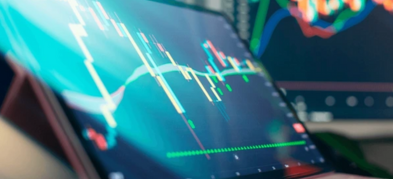Important Information
This website is managed by Ultima Markets’ international entities, and it’s important to emphasise that they are not subject to regulation by the FCA in the UK. Therefore, you must understand that you will not have the FCA’s protection when investing through this website – for example:
- You will not be guaranteed Negative Balance Protection
- You will not be protected by FCA’s leverage restrictions
- You will not have the right to settle disputes via the Financial Ombudsman Service (FOS)
- You will not be protected by Financial Services Compensation Scheme (FSCS)
- Any monies deposited will not be afforded the protection required under the FCA Client Assets Sourcebook. The level of protection for your funds will be determined by the regulations of the relevant local regulator.
Note: UK clients are kindly invited to visit https://www.ultima-markets.co.uk/. Ultima Markets UK expects to begin onboarding UK clients in accordance with FCA regulatory requirements in 2026.
If you would like to proceed and visit this website, you acknowledge and confirm the following:
- 1.The website is owned by Ultima Markets’ international entities and not by Ultima Markets UK Ltd, which is regulated by the FCA.
- 2.Ultima Markets Limited, or any of the Ultima Markets international entities, are neither based in the UK nor licensed by the FCA.
- 3.You are accessing the website at your own initiative and have not been solicited by Ultima Markets Limited in any way.
- 4.Investing through this website does not grant you the protections provided by the FCA.
- 5.Should you choose to invest through this website or with any of the international Ultima Markets entities, you will be subject to the rules and regulations of the relevant international regulatory authorities, not the FCA.
Ultima Markets wants to make it clear that we are duly licensed and authorised to offer the services and financial derivative products listed on our website. Individuals accessing this website and registering a trading account do so entirely of their own volition and without prior solicitation.
By confirming your decision to proceed with entering the website, you hereby affirm that this decision was solely initiated by you, and no solicitation has been made by any Ultima Markets entity.
I confirm my intention to proceed and enter this website Please direct me to the website operated by Ultima Markets , regulated by the FCA in the United Kingdom
Ultima Markets App
Trade Anytime, Anywhere
How to Keep Emotions Out
[Ultimate Guide on Trading Psychology]
Trading psychology refers to the mental and emotional aspects influencing a trader’s decision-making process.
While technical and fundamental analysis are essential for making informed trades, a trader’s mindset often determines success or failure. Emotions such as fear, greed, and overconfidence can cloud judgment, leading to impulsive decisions and unnecessary risks. Mastering trading psychology helps traders maintain discipline, stick to their strategies, and confidently execute trades.
Why is Trading Psychology Crucial?
Many traders assume that market success depends solely on having the right strategy. However, even the best strategies can fail if a trader lacks psychological discipline. Here’s why trading psychology is vital:
- Prevents Emotional Trading: Emotional reactions, such as panic selling or chasing a rally, often lead to losses.
- Enhances Risk Management: Traders who control their emotions can set realistic stop-loss levels and position sizes without fear-driven decisions.
- Boosts Consistency: Maintaining a stable mindset allows traders to follow their plan instead of deviating due to temporary market fluctuations.
- Reduces Overtrading: Many traders, especially beginners, fall into the trap of overtrading due to excitement or frustration. Strong psychological discipline helps prevent this.
Common Psychological Pitfalls in Trading
Understanding common mental challenges can help traders recognise and correct destructive behaviours. Here are some of the most frequent psychological pitfalls:
1. Fear and Hesitation
Fear of losing money often makes traders hesitate before entering or exiting a position. This can cause missed opportunities or premature exits from winning trades.
2. Greed and Overconfidence
Greed drives traders to take excessive risks, such as using high leverage or holding onto trades longer than necessary. Overconfidence can lead to ignoring risk management principles, assuming past success guarantees future profits.
3. FOMO (Fear of Missing Out)
Many traders feel pressured to enter a trade when they see a strong market movement. FOMO can result in entering positions too late, often at unfavourable prices, leading to unnecessary losses.
4. Revenge Trading
After a losing trade, some traders attempt to recover their losses immediately by making impulsive trades. This emotional reaction often leads to even more significant losses and further frustration.
5. Inability to Accept Losses
Losses are inevitable in trading, but many traders struggle to accept them. Instead of cutting losses early, they hold onto losing positions, hoping the market will reverse in their favour. This behaviour can lead to account blowouts.
6. Lack of Discipline
Many traders fail because they do not stick to their trading plan. They may deviate from their strategy due to emotional impulses, leading to inconsistent results.
Mastering trading psychology is just as important as learning technical and fundamental analysis. Without a disciplined mindset, even the best strategies will fail. Understanding the emotional challenges in trading and developing mental resilience can help traders improve their performance and achieve long-term success.
The Role of Emotions in Trading
Emotions play a significant role in trading decisions. Markets are driven by human psychology, and traders often react emotionally rather than logically. Understanding the impact of emotions like fear, greed, frustration, and overconfidence can help traders develop better control over their decisions, ultimately improving their success rate.
Fear and Greed: How They Impact Decision-Making
Fear is one of the most powerful emotions in trading. It can manifest in different ways, such as:
- Fear of losing money:Traders hesitate to enter a trade, missing out on opportunities.
- Fear of missing out (FOMO):Traders enter positions too late, buying at the top of a rally or shorting at the bottom of a decline.
- Fear of pulling the trigger:Even after thorough analysis, some traders struggle to enter trades due to fear of being wrong.
- Fear of holding onto trades:Traders exit profitable positions too soon, scared that the market might reverse.
Greed pushes traders to take excessive risks in the hope of maximising profits. It can lead to:
- Overleveraging:Using too much margin to chase more significant profits increases liquidation risk.
- Ignoring exit signals means holdingonto a trade longer than necessary, hoping for more profits, even when indicators suggest an exit.
- Overtrading:Taking too many trades due to excitement, often leading to unnecessary losses.
- Chasing the market:Entering trades impulsively because a price movement seems strong without proper analysis.
Balancing fear and greed is crucial. Traders must control their emotions and stick to their strategy instead of letting emotions dictate their actions.
Overconfidence and Its Dangers
Overconfidence often develops after a series of successful trades. Traders start believing they cannot lose and may take unnecessary risks. The dangers of overconfidence include:
- Ignoring risk management:Assuming trades will always go in their favour, leading to reckless position sizing.
- Disregarding stop-loss orders:Holding onto losing trades longer than they should, believing the market will turn around.
- Breaking trading rules:Straying from a proven strategy due to excessive self-assurance.
A disciplined trader remains humble, continuously evaluates risks, and does not let past success lead to reckless behaviour.
The Impact of FOMO (Fear of Missing Out)
FOMO is a psychological trigger that causes traders to act impulsively because they fear missing a profitable move. This often happens when markets are highly volatile or trending. The consequences of FOMO include:
- Entering trades too late:Buying at the peak of a trend or shorting at the lowest point.
- Ignoring risk-reward ratios:Entering trades with poor risk-to-reward potential.
- Panicking and making irrational decisions:Jumping into the market without a solid plan.
Successful traders learn to detach from market hype and wait for setups that align with their strategy instead of reacting emotionally.
Dealing with Frustration and Revenge Trading
Trading losses are inevitable, but how traders react to them determines their long-term success. Frustration often leads to:
- Revenge trading:Trying to recover losses immediately by making impulsive trades.
- Emotional instability:Feeling angry or disappointed, leading to poor decision-making.
- Loss of discipline:Abandoning risk management and taking uncalculated risks.
To combat frustration, traders should take breaks after losses, review their mistakes objectively, and stick to their trading plan without letting emotions dictate their actions.
Developing a Strong Trading Mindset
A strong trading mindset is essential for long-term success in the markets. Many traders focus on technical and fundamental analysis but overlook the psychological aspect of trading. Developing mental resilience, discipline, and patience can make the difference between consistent profitability and repeated losses.
The Importance of Discipline and Patience
Discipline: Sticking to the Plan
Discipline is what keeps traders from making impulsive decisions. It ensures they follow a structured plan rather than being swayed by emotions or market noise. Key aspects of trading discipline include:
- Following a Trading Plan:Every trade should be based on predefined entry, exit, and risk management rules.
- Avoiding Emotional Trading:Fear and greed often push traders to act irrationally. Discipline helps maintain control.
- Maintaining Consistency:Successful traders do not deviate from their strategies due to temporary market movements.
The best trading strategies can fail without discipline due to poor execution and erratic decision-making.
Patience: Waiting for the Right Setups
Patience is another critical element of a strong trading mindset. Many traders rush into trades due to FOMO or frustration, leading to losses. A patient trader:
- Waits for High-Probability Setups:Only enters trades when conditions align with their strategy.
- Avoids Overtrading:Does not trade just for the sake of being active in the market.
- Does Not Chase the Market:Allows opportunities to come to them rather than forcing trades.
Trading is a game of probabilities, and patience ensures traders only take calculated risks.
Building Emotional Resilience
Emotional resilience helps traders stay calm and rational, even during drawdowns or market volatility. Some ways to develop emotional resilience include:
- Accepting Losses as Part of the Game:Losses are inevitable in trading. Instead of fearing them, traders should view losses as learning opportunities.
- Detaching from the Outcome:Traders should focus on executing their strategy correctly rather than obsessing over the results of individual trades.
- Practicing Self-Control:Emotions like anger, frustration, and excitement can cloud judgment. Learning to stay composed improves decision-making.
- Developing a Long-Term Mindset:A single trade does not define a trader’s success. A strong mindset focuses on consistent execution over time.
Managing Stress Effectively
Trading can be stressful, especially during high volatility or extended losing streaks. Poor stress management can lead to emotional trading, often resulting in losses. Effective stress management techniques include:
- Taking Breaks:Walking away from the screen after a loss prevents emotional reactions.
- Using Risk Management Tools:Proper position sizing and stop-loss orders reduce anxiety about losing trades.
- Maintaining a Healthy Lifestyle:Exercise, proper sleep, and meditation help traders stay mentally sharp.
- Avoiding Overexposure to Market News:Too much news consumption can create unnecessary stress and lead to impulsive trading.
Reducing stress levels allows traders to think clearly and make rational decisions.
Cultivating a Growth Mindset
A growth mindset is the belief that skills and knowledge can be developed through effort and learning. Traders with a growth mindset:
- Learn from Mistakes:Instead of getting discouraged by losses, they analyse their mistakes and improve.
- Continuously Educate Themselves:They refine their skills through books, courses, and market analysis.
- Adapt to Market Changes:They adjust their strategies based on evolving market conditions.
- Do Not Let Failure Define Them:A losing trade does not mean they are bad traders; it is simply part of the process.
Traders with a growth mindset are more likely to succeed in the long run because they focus on continuous improvement rather than short-term outcomes.
Risk Management and Psychology
Risk management is one of the most critical aspects of trading. However, even with a solid risk management strategy, emotions often interfere with a trader’s ability to follow it properly. Understanding the psychological impact of risk and developing the discipline to manage it effectively can significantly improve long-term trading success.
How Emotions Affect Risk-Taking
Many traders struggle with risk management because emotions cloud their judgment. Some common emotional responses that impact risk-taking include:
Fear of Losing Money
Emotions like this cause traders to risk too little, limiting their profit potential. They also lead to premature exits from trades, cutting winners short and resulting in hesitation when entering trades, which leads to missed opportunities.
Greed and Overconfidence
This emotion encourages traders to risk more than they should after a series of winning trades. It leads to overleveraging, increasing exposure to significant losses and causes traders to ignore stop-loss levels, assuming the market will reverse in their favour.
Revenge Trading
After a loss, some traders increase their risk to recover quickly. This emotional response often leads to even more significant losses and a lack of discipline in risk management results in poor decision-making.
Risk Aversion
Some traders become too cautious after experiencing losses. Such emotion prevents them from taking valid trading opportunities, leading to stagnation. Excessive fear of loss can cause traders to exit trades too early, missing out on potential gains.
Controlling these emotions is essential for maintaining a consistent and logical approach to risk management.
The Role of Position Sizing and Stop-Loss Strategies
A well-planned risk management strategy includes position sizing and stop-loss levels. These tools help traders manage their exposure to risk without letting emotions dictate their actions.
Position Sizing: Controlling Risk Per Trade
Traders must determine how much capital is allocated to each trade. It prevents overexposure to a single position. A common rule is to risk only 1–2% of the trading account on any single trade.
Such a discipline helps traders stay in the game even after a series of losses.
Stop-Loss Strategies: Limiting Potential Losses
A stop-loss order is a critical tool for risk management. It ensures traders exit losing trades before losses become too large. Key stop-loss strategies include:
- Fixed Percentage Stop-Loss:Setting a stop at a certain percentage below the entry price (e.g., 2% of the account balance).
- Technical Stop-Loss:Placing stops at key technical levels, such as support and resistance zones.
- Time-Based Stop-Loss:Exiting a trade after a specific period if the market does not move as expected.
Using stop-loss orders properly helps traders remove emotional decision-making and stick to a predefined risk plan.
Understanding Probability and Expectation
Trading is a game of probabilities. No strategy has a 100% win rate; even the best traders experience losses. Understanding probability and expectation helps traders stay psychologically intense and avoid emotional reactions.
Win Rate vs. Risk-Reward Ratio
A trader does not need a high win rate to be profitable. A 40% win rate strategy can still be profitable if the risk-reward ratio is 1:3 (winning trades are three times bigger than losing trades). Focusing on probability instead of individual trade outcomes reduces emotional stress.
Embracing the Law of Large Numbers
A trader must consider long-term probabilities rather than short-term results. A losing trade does not mean the strategy is bad—losses are part of the process. The goal is to execute trades consistently according to the plan, knowing that, over time, the edge will play out.
Successful traders do not focus on avoiding losses but on managing risk effectively while staying psychologically disciplined. Emotions like fear, greed, and overconfidence can disrupt a well-planned risk management strategy, leading to inconsistent results. By controlling risk per trade, using stop-loss orders, and thinking about probabilities, traders can develop a mindset that supports long-term profitability.
Trade with Ultima Markets
Ultima Markets is a fully licensed broker and a multi-asset trading platform offering access to
250+ CFD financial instruments, including Forex, Commodities, Indices and Shares. We
guarantee tight spreads and fast execution. Until now, we have served clients from 172
countries and regions with our trustworthy services and well-built trading systems.
Ultima Markets has achieved remarkable recognition in 2024, winning prestigious awards
such as the Best Affiliates Brokerage, Best Fund Safety in Global Forex Awards, and
the Best APAC CFD broker in Traders Fair 2024 Hong Kong. As the first CFD broker to join
the United Nations Global Compact, Ultima Markets underscores its commitment to
sustainability and the mission to advance ethical financial services and contribute to a
sustainable future.
Ultima Markets is a member of The Financial Commission, an international independent
body responsible for resolving disputes in the Forex and CFD markets.
All clients of Ultima Markets are protected under insurance coverage provided by Willis
Towers Watson (WTW), a global insurance brokerage established in 1828, with claims
eligibility up to US$1,000,000 per account.
Open an account with Ultima Markets to start your index CFDs trading journey.












